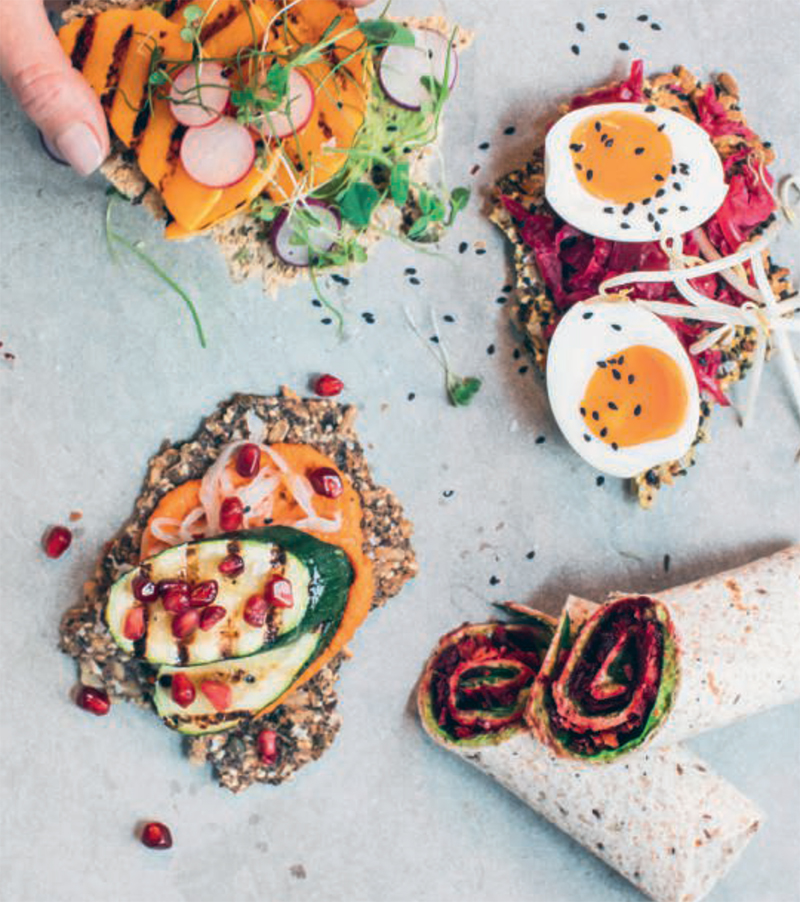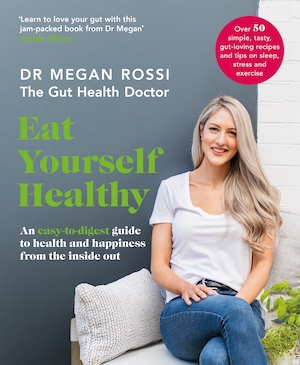The impact of our lifestyle on our gut microbiome (GM) is not always positive. Sometimes it just takes a moment for us to stop and reflect on the way we treat our bodies (and therefore our microbes), to realise that perhaps we haven’t been the best hosts—after all, they’ve been looking out for us, but have we been looking out for them?
Without intending to bring on any guilt, but rather to help strengthen your relationship, let’s take a look at some of our GM’s key vulnerabilities. In doing so, next time you’re considering a certain behaviour, perhaps you’ll spare a thought for how it may also affect your microbes.
Read: How parents can boost their kid’s gut health
1. Medication
There is growing awareness that antibiotics (which translates to “anti-life” in Greek) not only kill the overgrown and “bad” bacteria but also harm the beneficial guys. In some people these changes appear to be irreversible, meaning not all the good guys repopulate after the antibiotics. It’s not just antibiotics we need to watch out for either—a recent study has suggested that more than one-quarter of non-antibiotic medications (of the more than 900 tested) can potentially impact the growth of our gut microbes.
Don’t get me wrong—medications such as antibiotics are incredibly important, but the next time your GP explains that they may not be necessary because your infection is likely to be viral in origin (which means antibiotics won’t work), it’s worth taking them seriously. Similarly, if you’re taking medication because it’s easier than changing your lifestyle, for example decreasing your alcohol intake in the case of reflux, or relying on sleeping pills instead of working on your sleep hygiene, then it might be worth having a rethink of the potential harm you could be doing. That said, don’t go getting too hasty—any decision regarding changing medication should be done under guidance from your healthcare team.
It’s not all doom and gloom when it comes to our microbes and medication. One of the most common medications prescribed for type 2 diabetes (known as metformin) has recently been shown to benefit our GM. This discovery is thought to be a new mechanism by which metformin improves millions of patients’ blood-sugar regulation. And it’s likely not alone, with several other medications suspected to target the GM in order to exert their medicinal benefit.
2. Sleep
Sleep disturbance, including both shift work and jet lag (or motherhood!), is another major factor shown to disrupt our GM. This is because, like us, our GM exhibits a sleep–wake cycle, known as the circadian rhythm. Interestingly, the negative impact of sleep disturbance on our GM may explain, at least in part, the increased risk of weight gain and diabetes in people with disturbed sleep. Further still, research suggests that this relationship is bidirectional. This means that a disturbed GM may also lead to disturbed sleep.
There is some good news, however. One study showed that a type of probiotic improved sleep in a group of students, compared to the placebo (a fake probiotic). In my practice, I’ve also found that simple dietary changes to boost our GM have helped many shift-workers improve their sleep quality. In turn, working on your sleep hygiene may also be worth a thought to ensure that not just you but your GM, too, get the most out of pillow time.
3. Dieting
What about that crazy diet you may have tried last summer—did that impact your GM? Interestingly, although our GM can change within days of being on an extreme diet, the overall changes that occur to the microbes following a short-term diet are not as extreme as you may think. What does happen, however, is that it alters the function of these microbes; that is, what the microbes actually do and what they produce (the metabolome).
Animal research suggests that the rapid weight-regain phenomenon that occurs with “yo-yo” dieting (you know, when you seem to regain the weight in half the time it took you to lose it) may in fact be down to our GM. The study not only demonstrated that mice with a previous “weight gain, weight loss” cycle were more susceptible to fast weight gain the second time around, it also showed that this tendency to gain more weight could be transferred to other mice via a poop transplant. This finding suggests that the weight gain was because of their GM and not because of other factors like the mouse’s metabolism. Now, before the “Oh no, what have I done?” feeling sets in, the researchers did also show that this tendency to regain weight rapidly could be reversed with the right nutrition.
The seven nutritional principles for healthy gut health
Here are my seven guiding principles that support good gut health. Remember: it’s just a guide for you to tweak according to your (and your microbes’) preferences.
1. Mostly plants
From fibre to prebiotics and polyphenols, there is no question that plants are our GM’s favourite food.
2. Diversity all the way
It’s all about feeding and maintaining our diversely skilled team of microbes. Remember: they all prefer different plant-based foods.
3. Whole and natural versus refined and perfect
Less waste, more nutrients; it’s a no-brainer.
4. Herb and spice up your life
There’s a whole other world of flavours waiting for your taste buds (and GM) to discover.
5. Get among legumes (beans and pulses)
The under-rated “superfood” group loaded with prebiotics and fibre, they’re one of the most cost-efficient, nutrient-dense, widely available foods.
6. Dabble in fermented food
It really is the ultimate way to engage with our microbial residents, not to mention the incredible flavours and textures that result.
7. Taste, explore, pause and enjoy
Food is about more than just our health; it’s about community, culture and experiences. Focusing only on the health aspect can sabotage our relationship with food, which, perhaps not surprisingly, is linked with higher rates of gut issues. Our GM can sense the unrest!
Bonus recipe: Sweet potato and pulsing frittata

Extracted, with permission, from Eat Yourself Healthy, by Dr Megan Rossi (Penguin Books, 2019).

How helpful was this article?
Click on a star to rate it!
0 / 5. 0
Be the first to rate this post!
Dr Megan Rossi
Related posts
Subscribe
Receive personalised articles from experts and wellness inspiration weekly!


